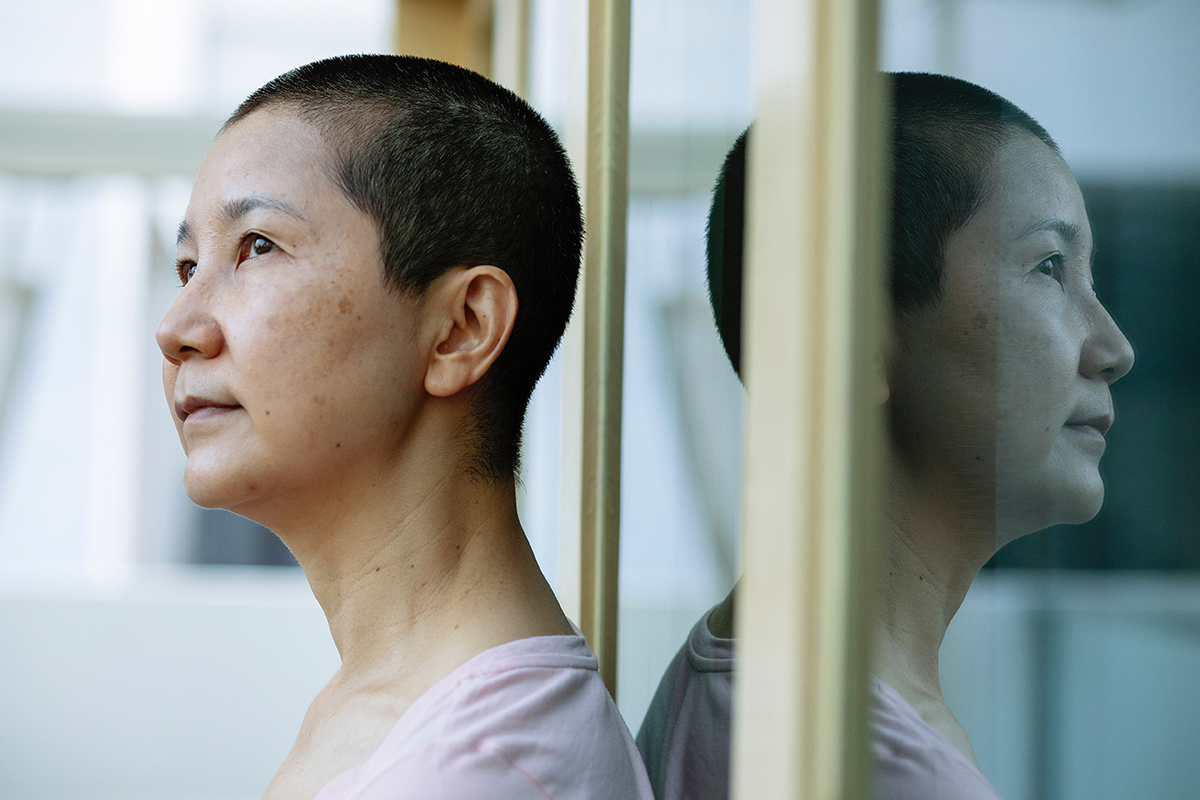Hereditary breast and ovarian cancer syndrome, known as HBOC, refers to a predisposition to develop cancer that is passed down through the generations of a family. HBOC is inherited in the form of a harmful mutation, or change, in a gene. Having one of these mutations increases the chances of developing ovarian cancer. Most commonly, mutations in the genes BRCA1 and BRCA2 are associated with HBOC, but harmful changes in other genes also can increase the risk of ovarian cancer.
What is HBOC?
HBOC syndrome means having a strong family history of cancer and a documented genetic change associated with breast and ovarian cancer. It’s long been known that breast
Those who inherit harmful changes in these genes are at high risk of both types of cancer. In the general population, about 1.3% of women develop ovarian cancer at some point in their lifetime. But about 44% of those with a harmful BRCA1 mutation, and about 17% of those carrying a harmful BRCA2 mutation, will develop ovarian cancer by the age of 80.
More genes have since been found that, when mutated, increase the risk of ovarian cancer, but they are less common. Mutations in BRCA1 and BRCA2, as well as other genes, can also be inherited by men. So men, too, can have HBOC syndrome and can pass on these harmful genetic changes to their children. And they themselves are at higher risk of certain cancers.
Causes and Risk Factors for HBOC
A strong family history of cancer, especially breast or ovarian cancer, increases the risk of HBOC syndrome. This means a family health history that includes any of the following:
- Breast cancer in one or more women, diagnosed younger than age 45
- Breast cancer in one or more women, diagnosed younger than age 50, and additional family members with prostate cancer, melanoma, or pancreatic cancer
- Individuals of different generations, on one side of the family, diagnosed with breast and/or ovarian cancers
- Any male relative with breast cancer
- A known BRCA mutation in a family member
- Ashkenazi Jewish ancestry
A personal history of breast or ovarian cancer is also a risk factor for HBOC.
BRCA Gene Testing
People sometimes say, “I have the BRCA gene” or “I’m BRCA positive.” What they mean is that a genetic test has shown that they have harmful changes in either the BRCA1 or BRCA2 gene that increase their risk of ovarian or breast cancer.
Genetic testing for harmful variants of the BRCA1 and BRCA2 genes, as well as other genes, is done by analyzing a blood or saliva sample. A doctor or a genetic counselor can order the test, which is sent to a laboratory. This is important, because laboratory tests can detect many more mutations than at-home DNA test kits that include only basic BRCA screening.
In addition, more tests have become available in recent years as new genetic variants are identified. People with a strong family history, who in the past were tested only for BRCA mutations, and were negative, should consider getting a broader panel of genetic tests. In fact, any person with a strong family history of breast and ovarian cancer should discuss genetic testing with their doctor.
A genetic counselor can help with interpreting genetic testing results. Both positive (mutations detected) and negative (mutations not detected) tests can affect treatment and prevention strategies. Sometimes genetic tests don’t give a clear answer about cancer risk, and further testing may be advised.
An individual’s genetic test results impact other family members as well. A positive test means that some relatives also carry harmful genetic mutations. A genetic counselor can help with understanding whether or how to talk about test results with other family members.
The Society of Gynecologic Oncology recommends that all women with ovarian cancer undergo genetic testing. The result will guide their treatment plan. For example, drugs have recently become available for certain people with ovarian cancer related to BRCA mutations.
Treatment Options
In most cases, the cause of ovarian cancer is unknown. Heredity accounts for only a limited number of ovarian cancers. But a family history of ovarian cancer is a strong risk factor, and genetic testing can confirm HBOC syndrome. Women who have tested positive for harmful BRCA1 or BRCA2 mutations, as well as less common genetic changes, can take steps to reduce the risk of future ovarian cancers. Each has implications for physical and emotional health. Pursuing these options is a personal decision that should be discussed with the health care team.


